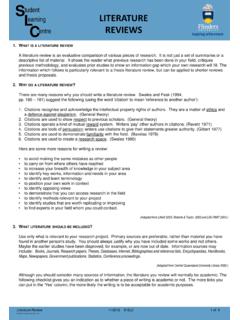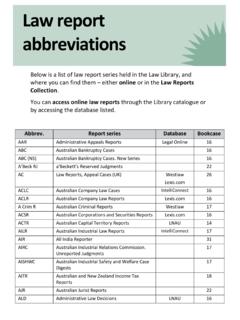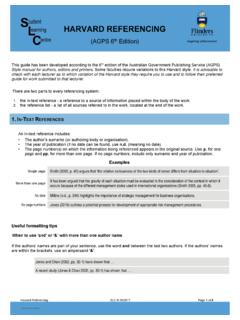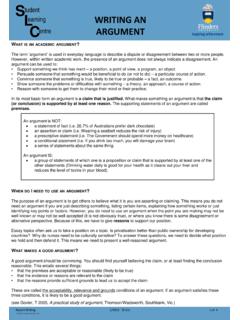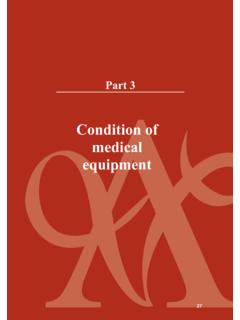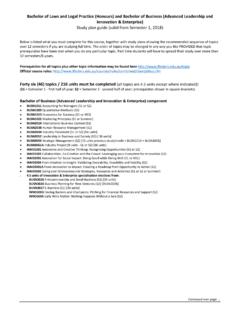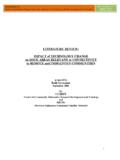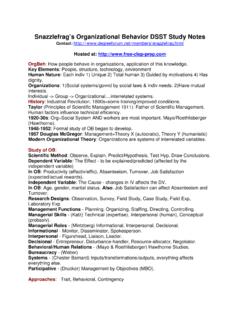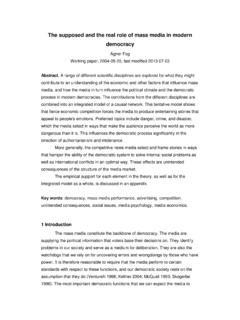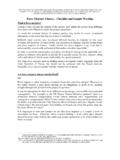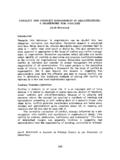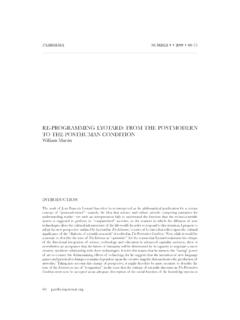Transcription of Refinements to Legitimacy Theory in Social and ...
1 Refinements to Legitimacy Theory in Social and Environmental Accounting Matthew V. Tilling Flinders University, South Australia The author wishes to acknowledge the valuable support provided by the CPA Australia in funding this research through their Research Grant Scheme. COMMERCE RESEARCH PAPER SERIES NO. 04-6 ISSN: 1441-3906 Legitimacy is a generalized perception or assumption that the actions of an entity are desirable, proper, or appropriate within some socially constructed system of norms, values, beliefs, and definitions (Suchman, 1995, p.)
2 574, emphasis in original) Legitimacy Theory has become one of the most cited theories within the Social and environmental accounting area. Yet there remains deep scepticism amongst many researchers that it offers any real insight into the voluntary disclosures of corporations. This brief paper outlines responses to two specific concerns identified in the literature. It will eventually form part of a much larger project addressing a range of issues associated with Legitimacy Theory . First, the paper brings some of the more recent developments in the management and ethical literature on Legitimacy and corporations to the accounting table.
3 Second, there are contributions to the Theory that have already been made by accounting researchers that are yet to be fully recognised. The author believes that Legitimacy Theory does offer a powerful mechanism for understanding voluntary Social and environmental disclosures made by corporations, and that this understanding would provide a vehicle for engaging in critical public debate. The problem for Legitimacy Theory in contributing to our understanding of accounting disclosure specifically, and as a Theory in general, is that the term has on occasion been used fairly loosely.
4 This is not a problem of the Theory itself, and the observation could be equally applied to a range of theories in a range of disciplines (see for example Caudill (1997) on the abuse of Evolutionary Theory ). Failure to adequately specify the Theory has been identified by Suchman (1995, p. 572, emphasis in original), who observed that Many researchers employ the term Legitimacy , but few define it . Hybels (1995, p. 241) comments that As the tradesmen [sic] of Social science have groped to build elaborate theoretical structures with which to shelter their careers and disciplines, legitimation has been a blind man s hammer.
5 This paper begins to address these issues. Not One Theory but Two (at least) An important issue which needs to be acknowledged is that there are in fact two major classes of Legitimacy Theory . These are graphically presented in Figure 1 below. The macro- Theory of legitimation, known as Institutional Legitimacy Theory , deals with how organisational structures as a whole (capitalism for example, or government) have gained acceptance from society at large. Within this tradition, Legitimacy and institutionalization are virtually synonymous.
6 Both phenomena empower organizations primarily by making them seem natural and meaningful (Suchman, 1995, p. 576, emphasis in original). In terms of accounting research, given the time frames involved and questions generally being considered, the current business environment, including the capitalist structure, democratic government, etc. are generally taken as a given, a static context within which the research is situated. This assumption would, however, need to be carefully considered for a longitudinal study of any significant length.
7 Figure 1: Layers of Legitimacy Theory EstablishmentMaintenanceExtension Defence ORGANISATIONAL LEVEL (IN THIS CASE: COMPANY LTD BY SHARE) RELIGIONSOCIETYCAPITALISM GOVERNMENT INSTITUTIONAL LEVEL From the Moral to the Measurable One layer down from the Institutional Level is what in Figure 1 is called the Organisational Level (sometimes referred to as Strategic Legitimacy Theory ). Underlying organizational Legitimacy is a process, legitimation, by which an organization seeks approval (or avoidance of sanction) from groups in society (Kaplan and Ruland, 1991, p.)
8 370). It is from this level that most accounting research tends to draw its understanding of Legitimacy . Mathews (1993, p. 350) provides a good definition of Legitimacy at this level: Organisations seek to establish congruence between the Social values associated with or implied by their activities and the norms of acceptable behaviour in the larger Social system in which they are a part. In so far as these two value systems are congruent we can speak of organisational Legitimacy . When an actual or potential disparity exists between the two value systems there will exist a threat to organisational Legitimacy .
9 At its simplest, within the Organisational view Legitimacy [is] an operational resource .. that organizations extract - often competitively - from their cultural environments and that they employ in pursuit of their goals (Suchman, 1995, p. 575 - 6, emphasis in original). Legitimacy , just like money, is a resource a business requires in order to operate. Certain actions and events increase that Legitimacy , and others decrease it. Low Legitimacy will have particularly dire consequences for an organisation, which could ultimately lead to the forfeiture of their right to operate.
10 Although we can describe a firm as being legitimate, and conceive of amounts of Legitimacy , it becomes a very subjective exercise to try and directly measure Legitimacy . Although it has concrete consequences, Legitimacy itself is an abstract concept, given reality by multiple actors in the Social environment. For a researcher to try and directly establish, or even rank, the Legitimacy of various organisations would seem to be a necessarily subjective undertaking, preferencing the researcher s own views.


